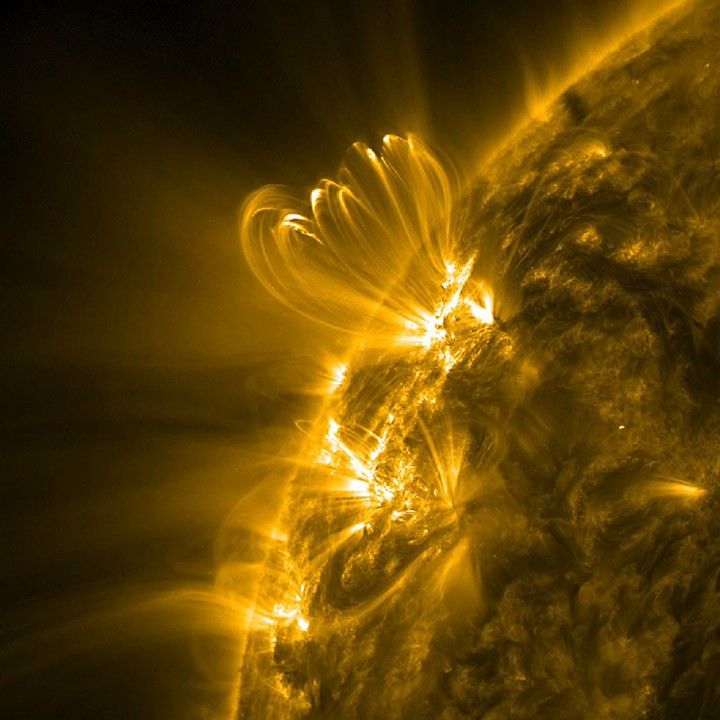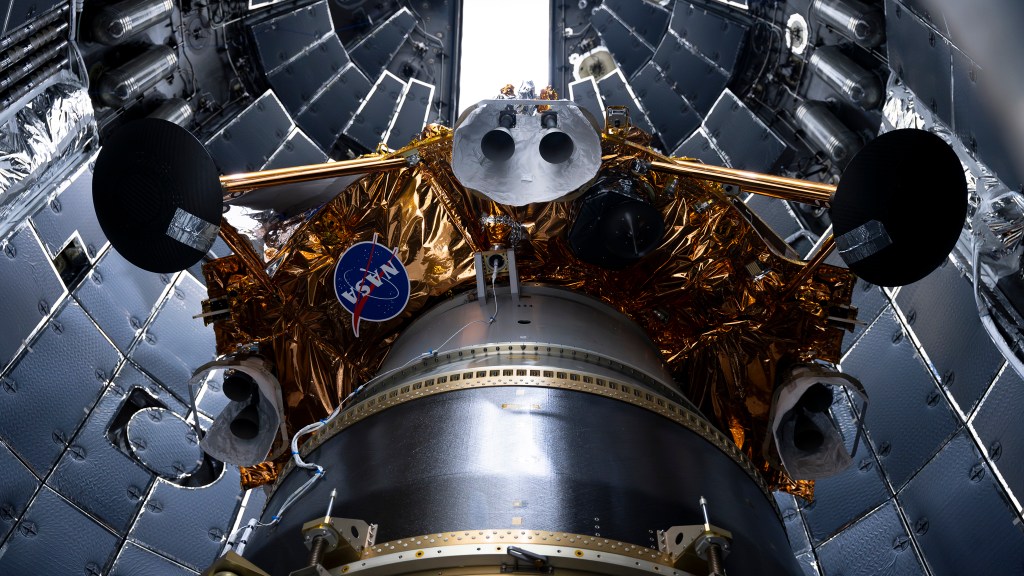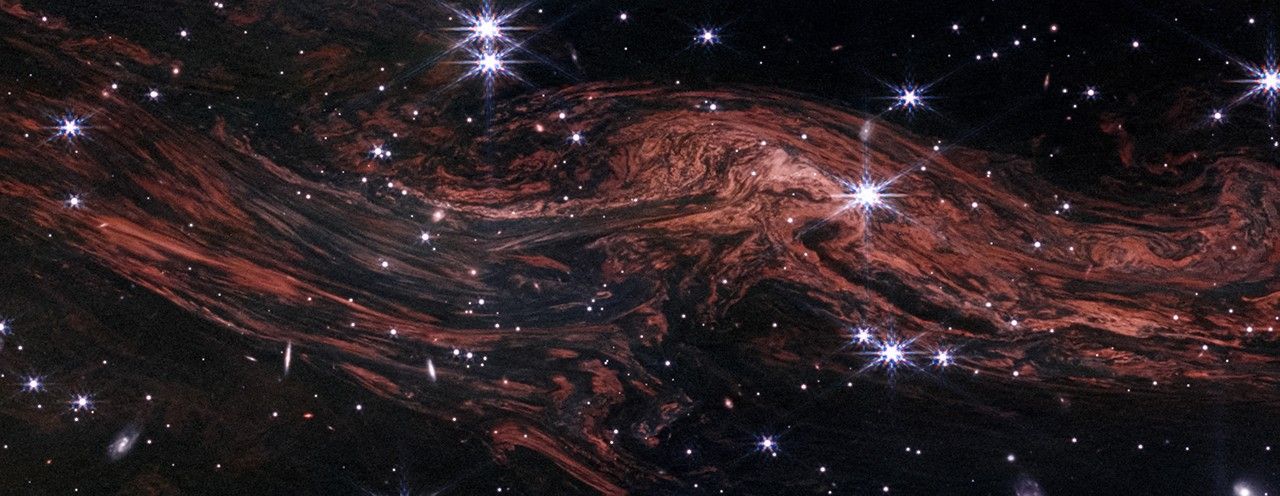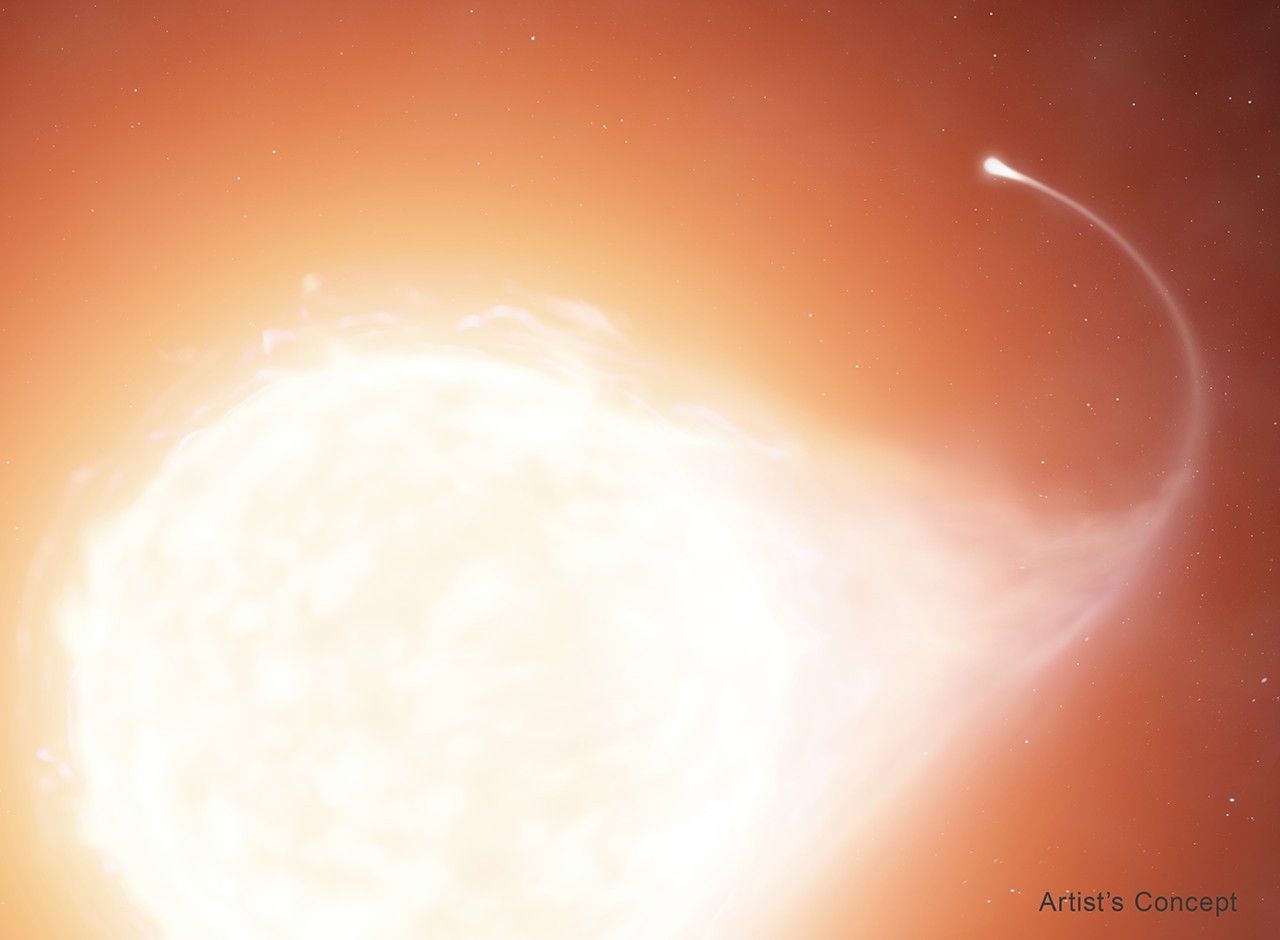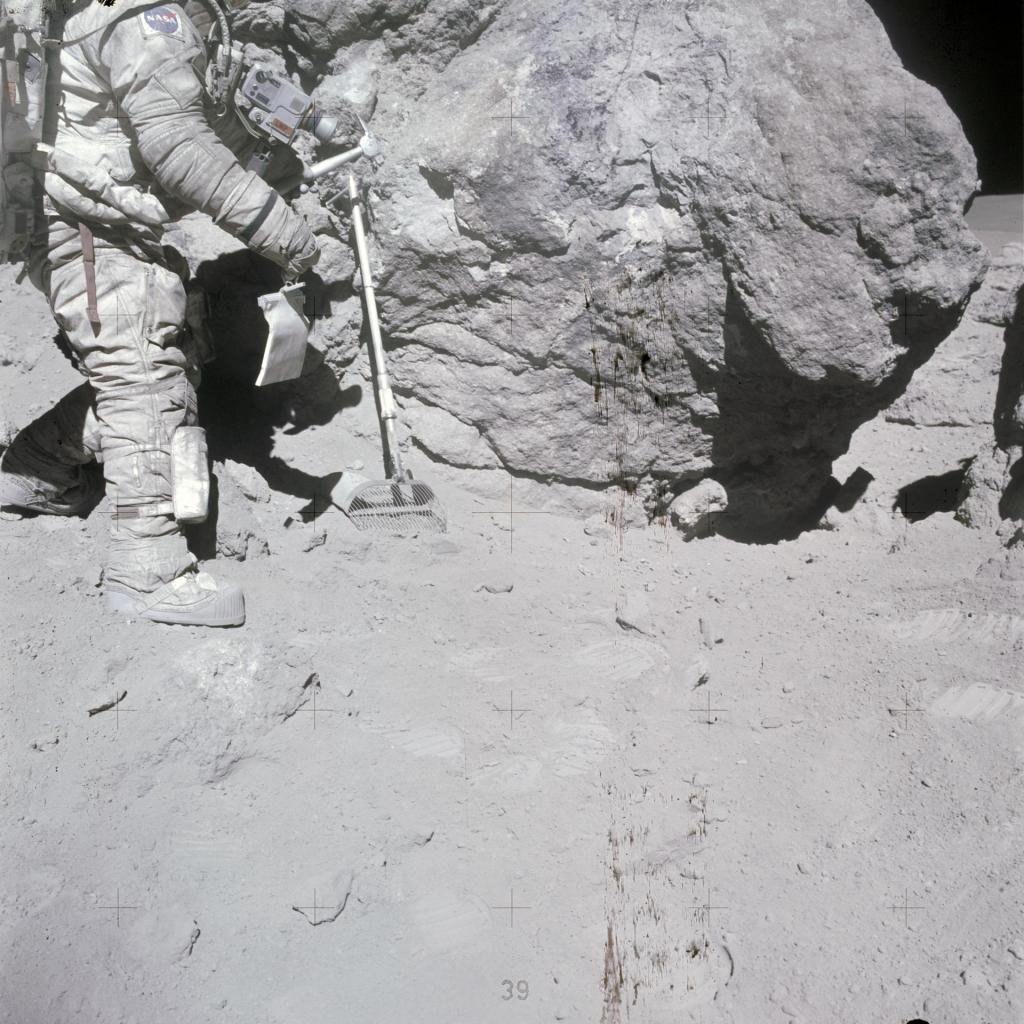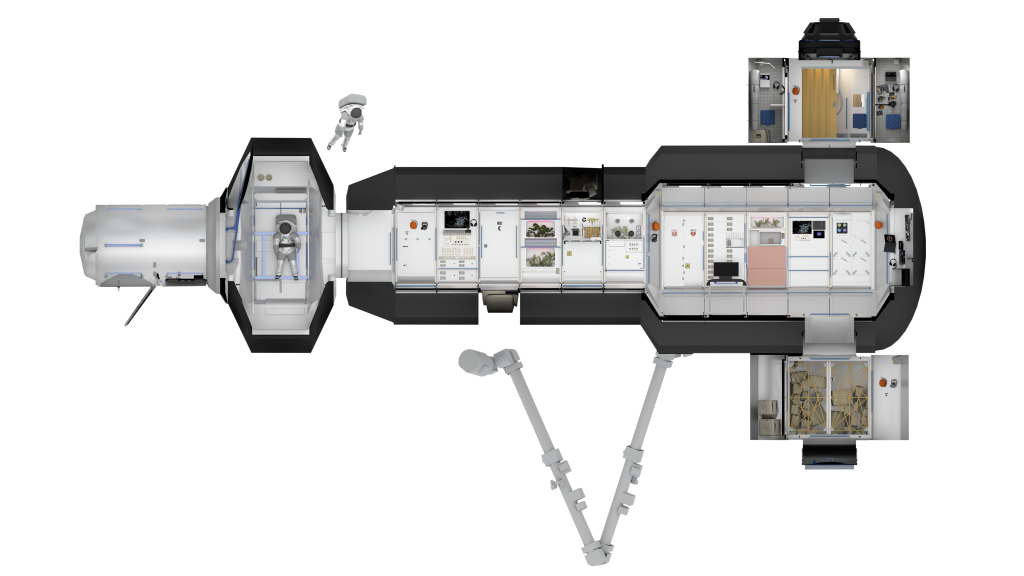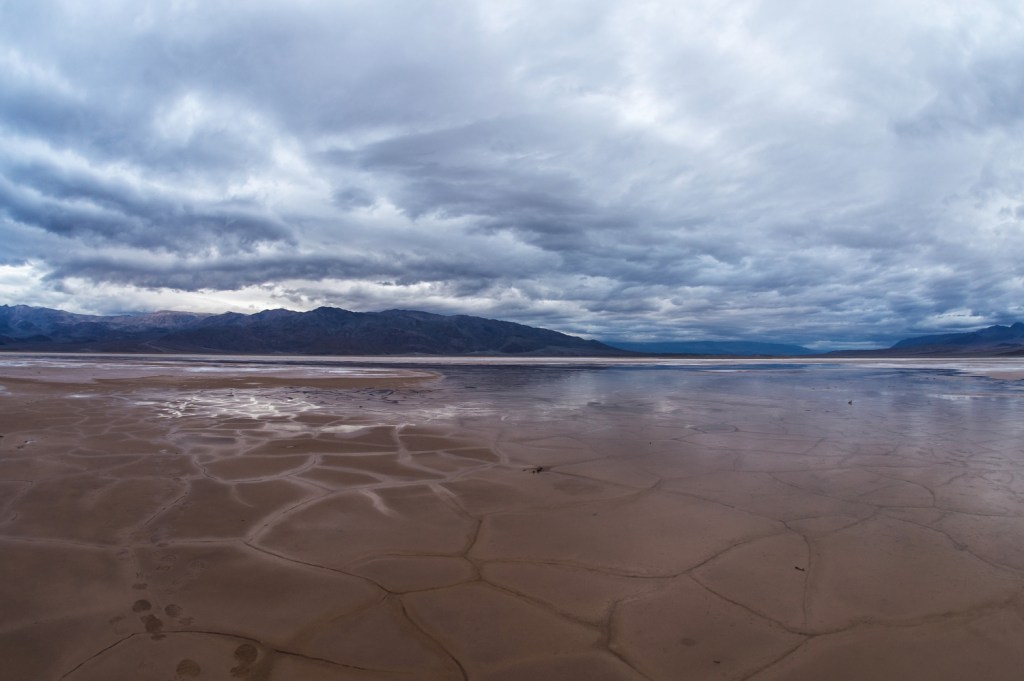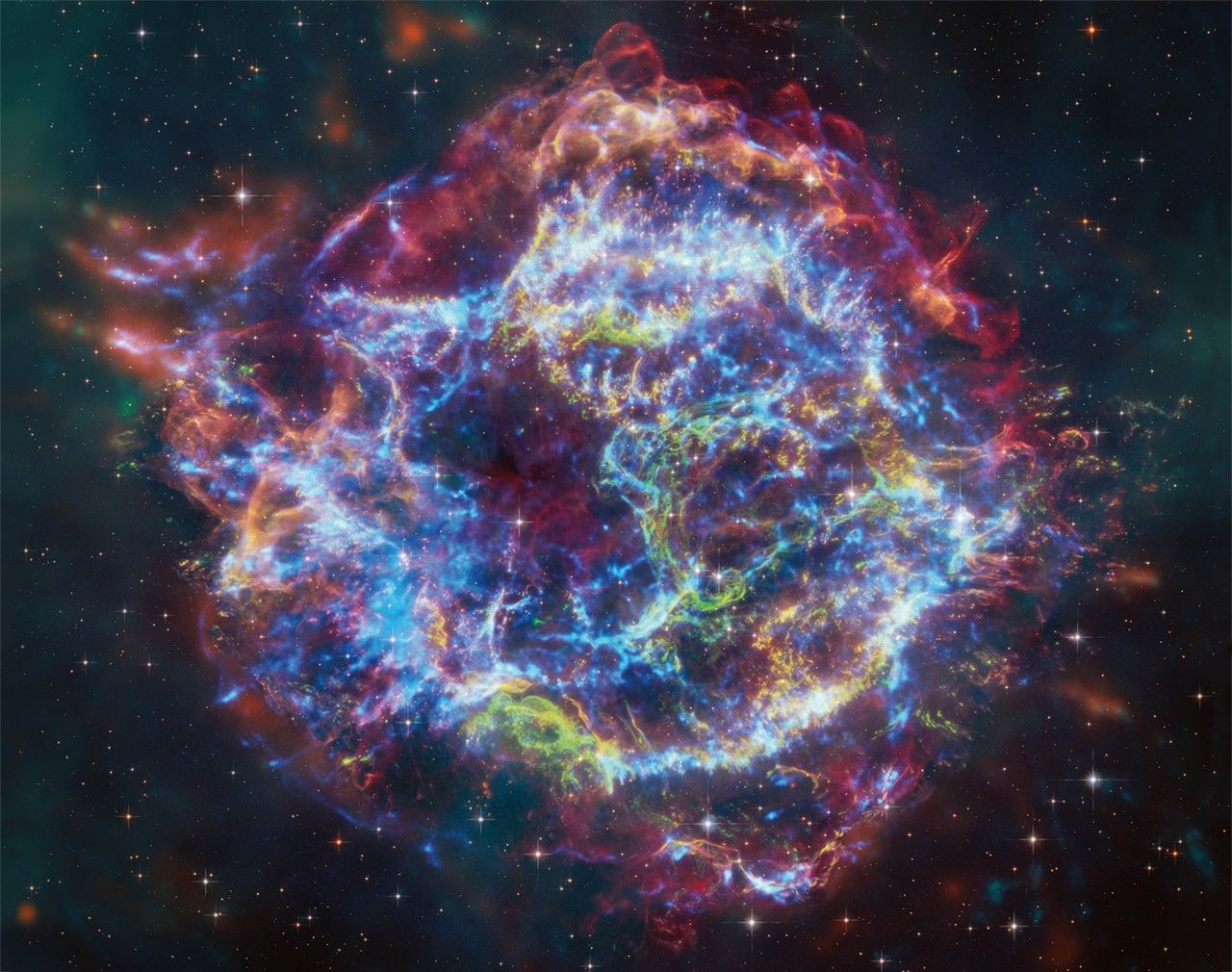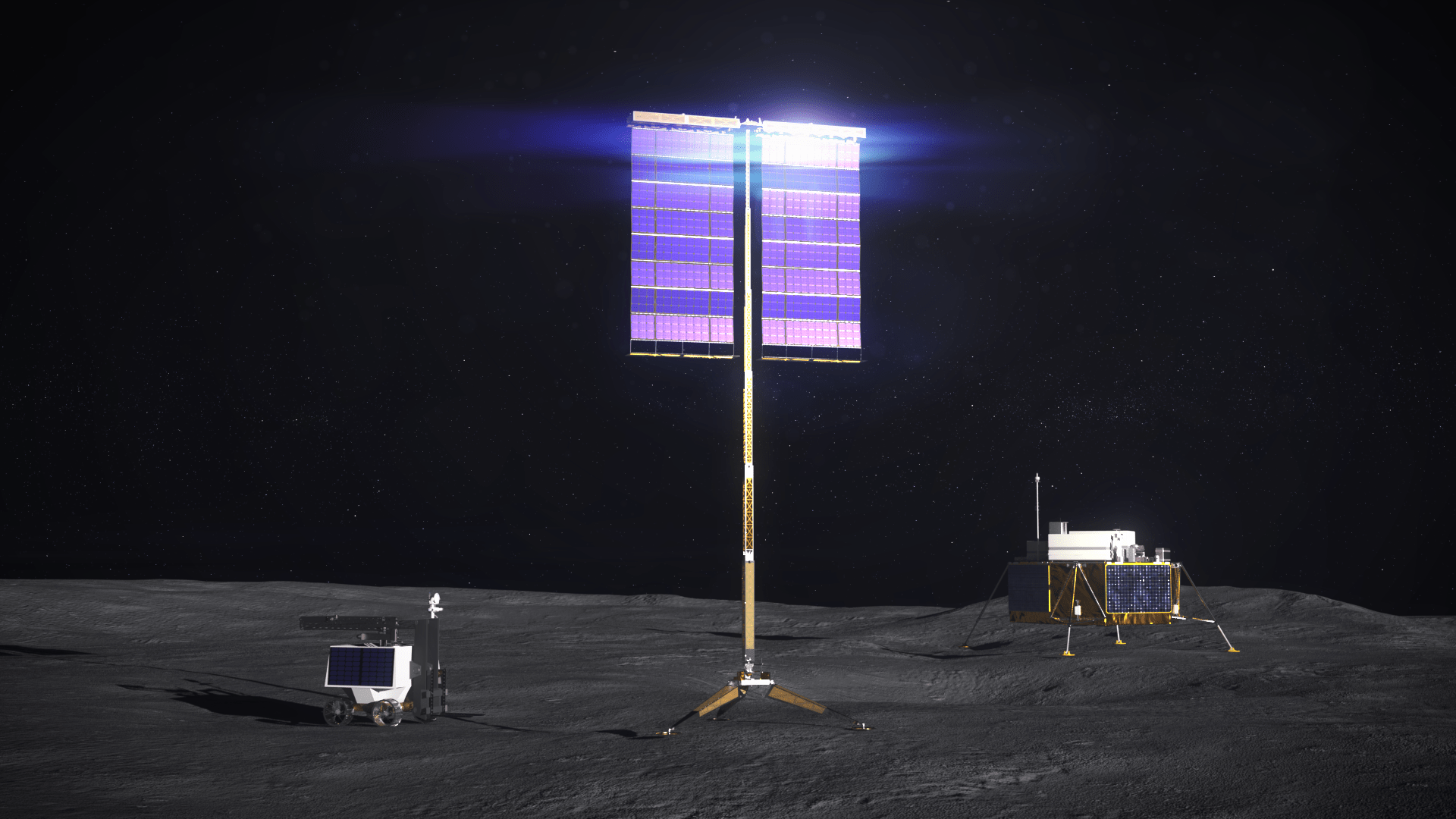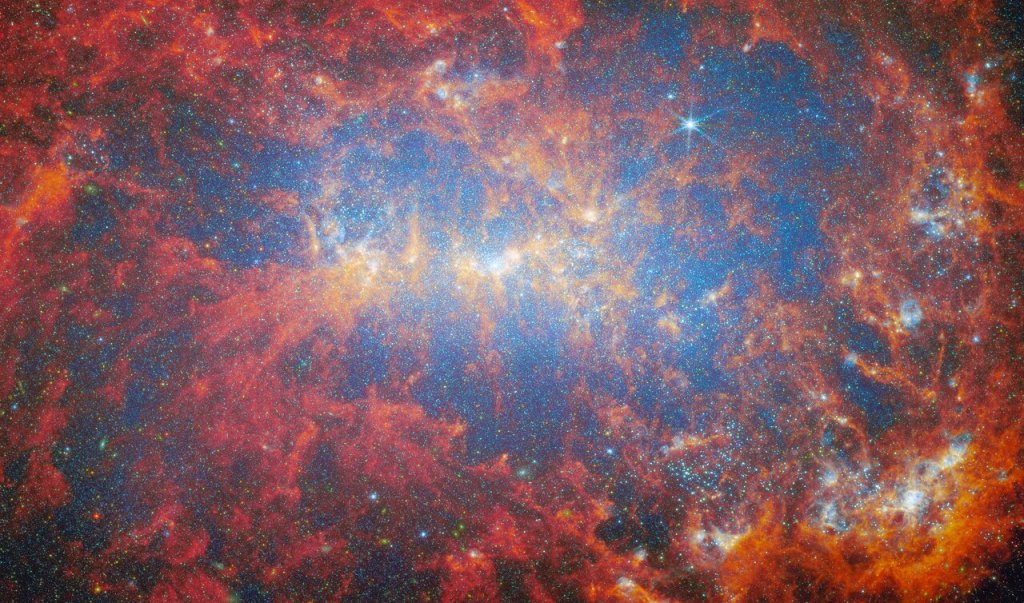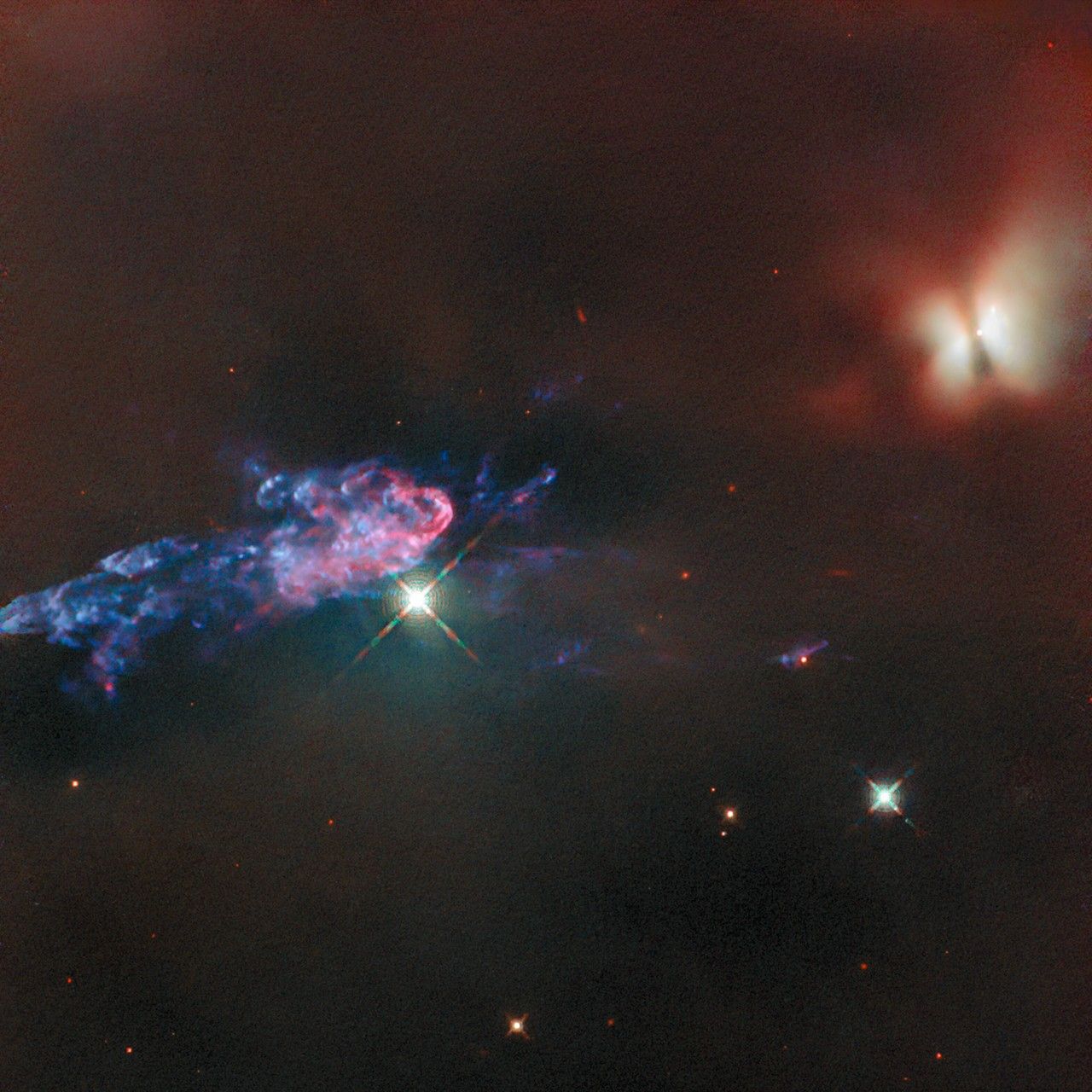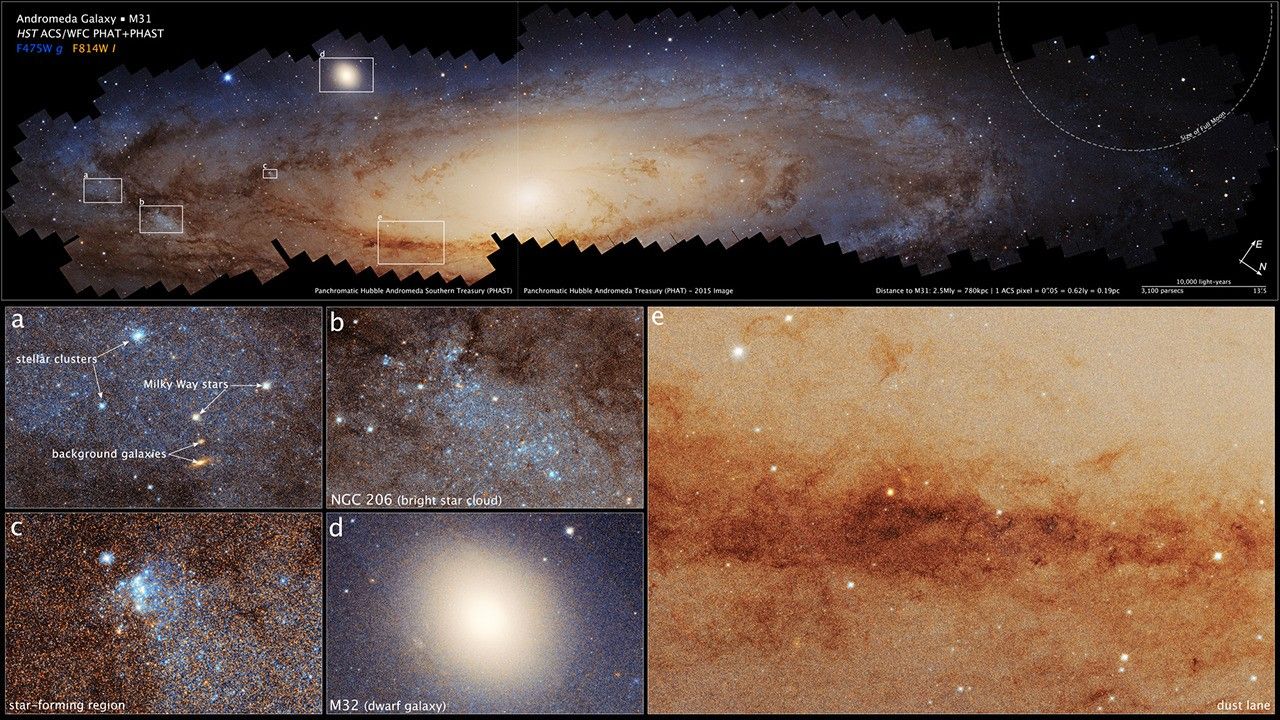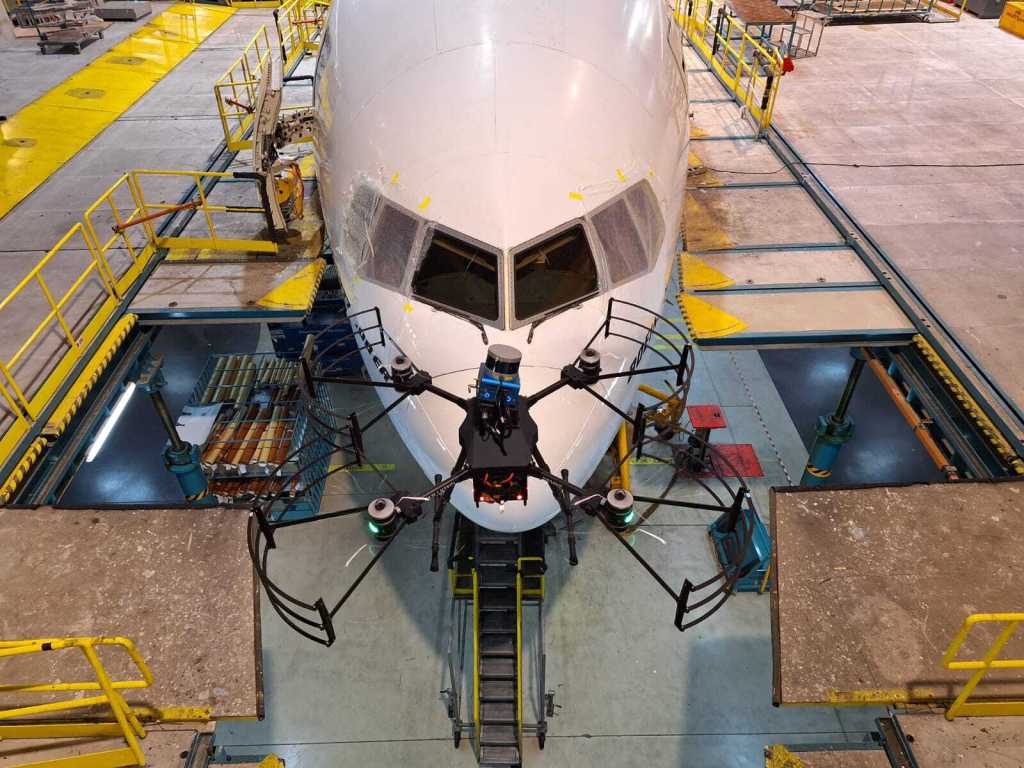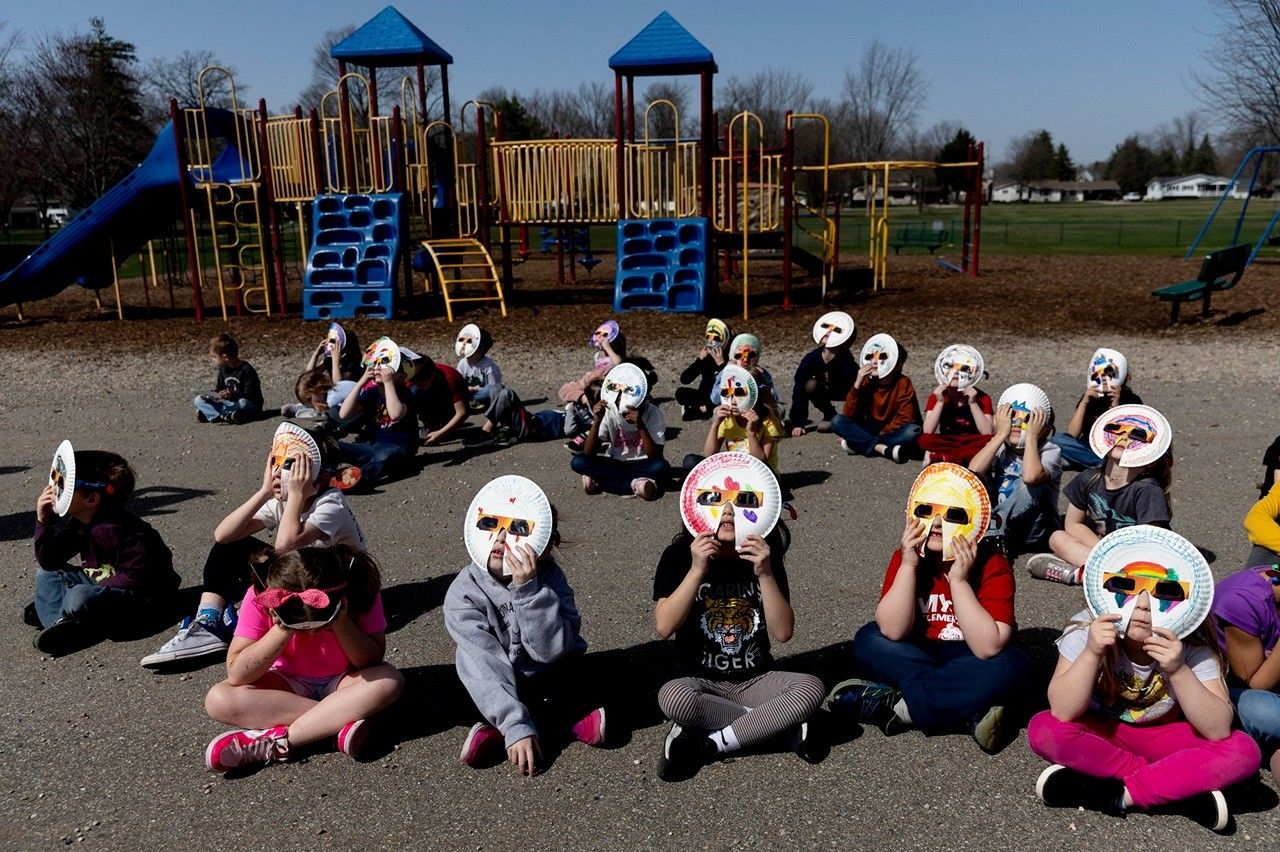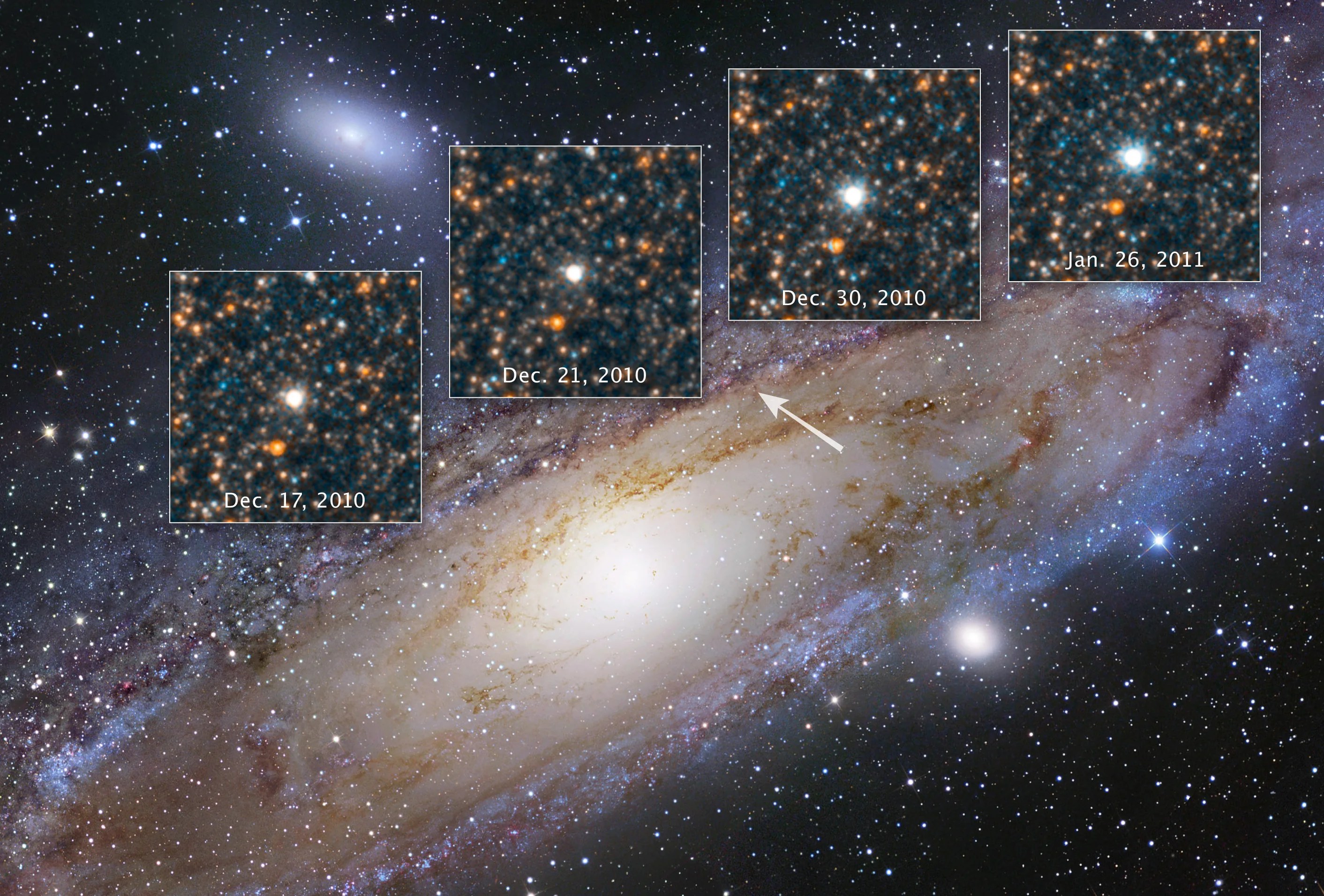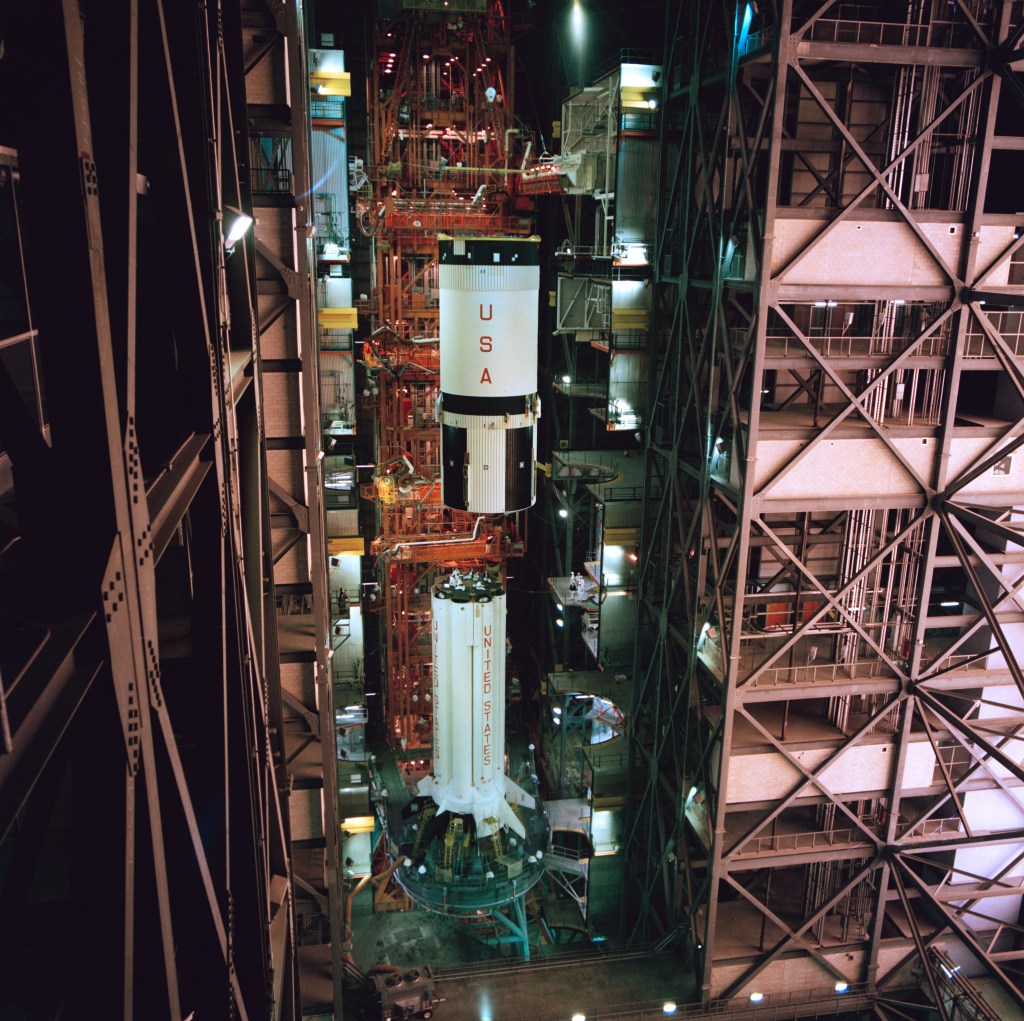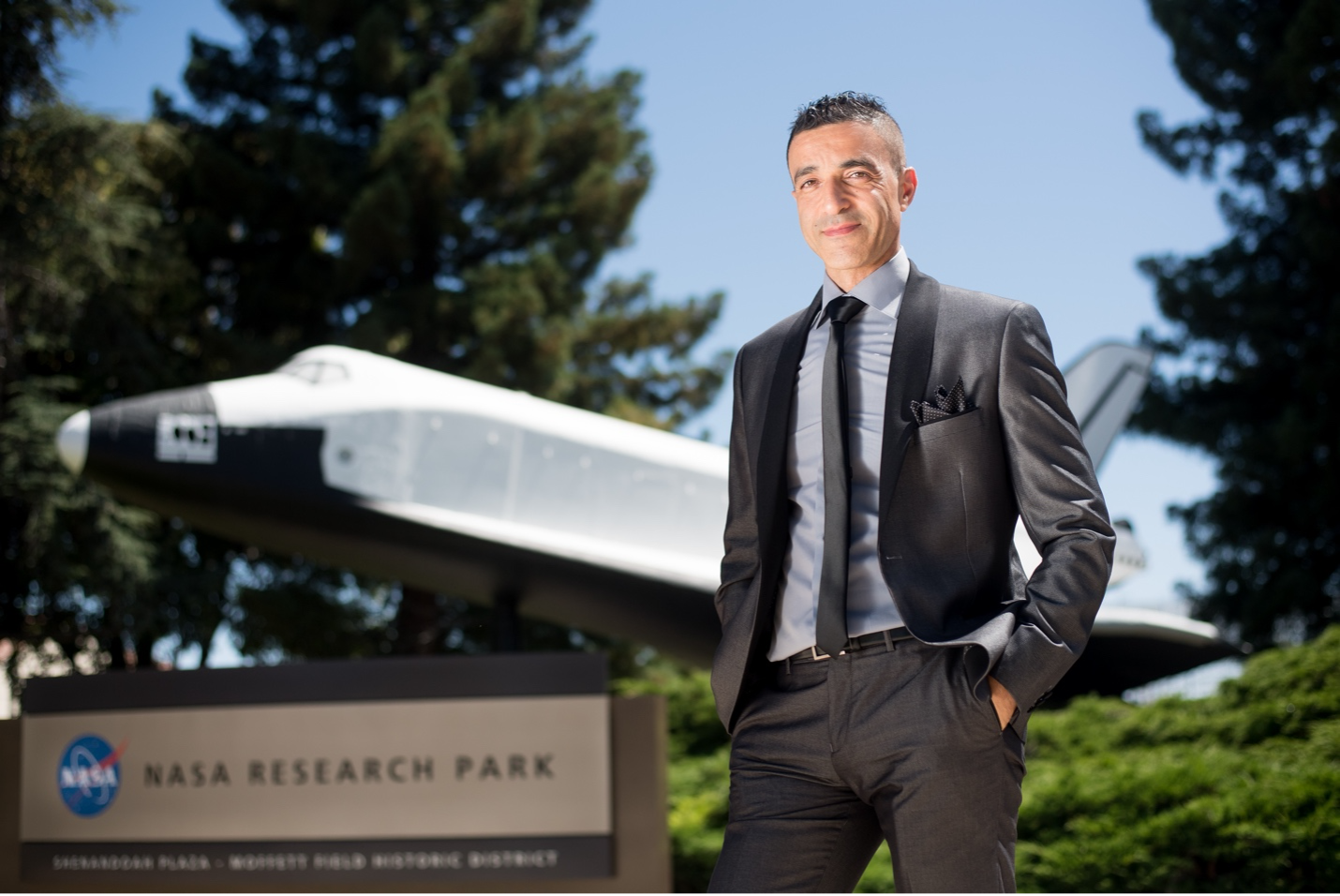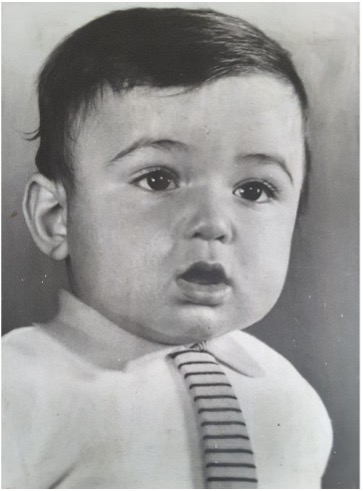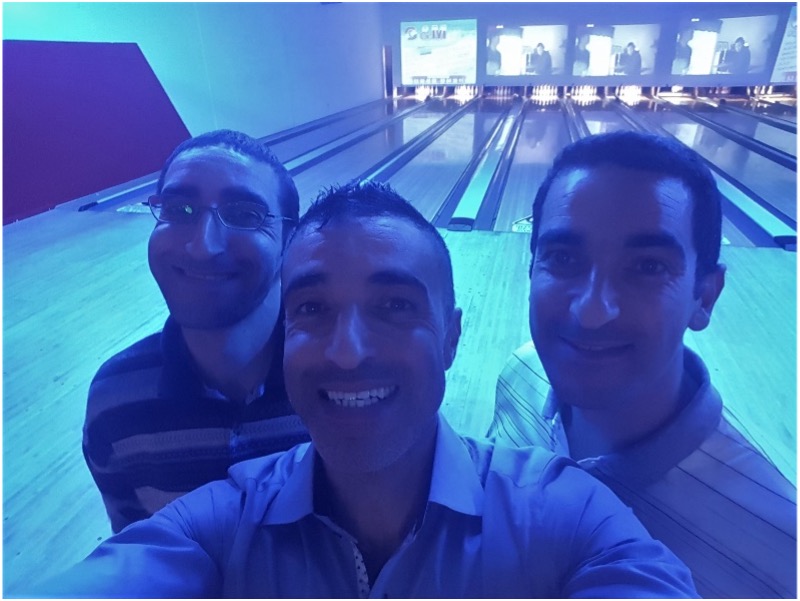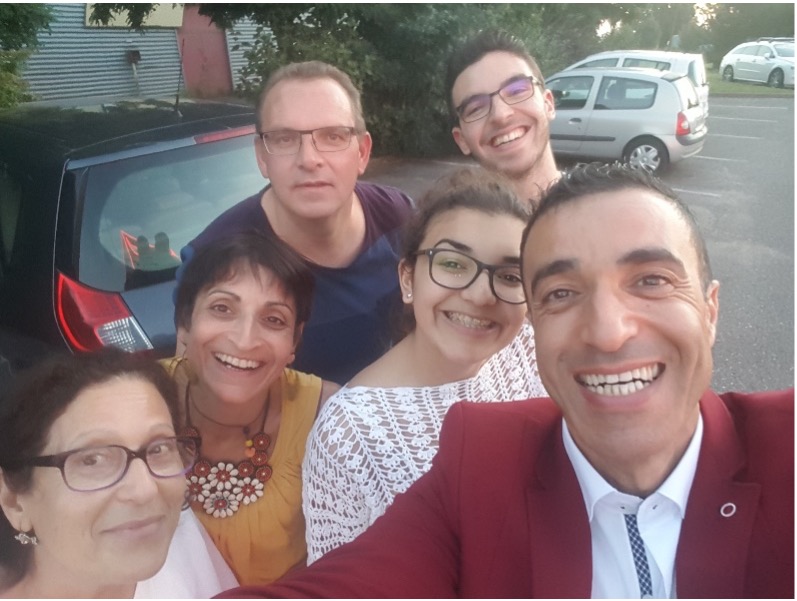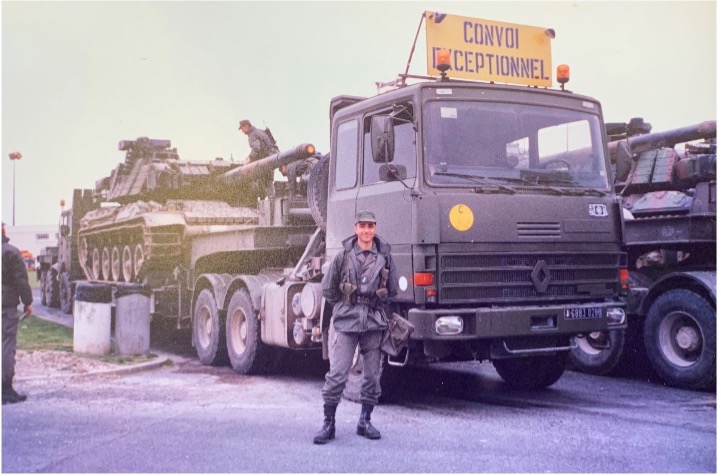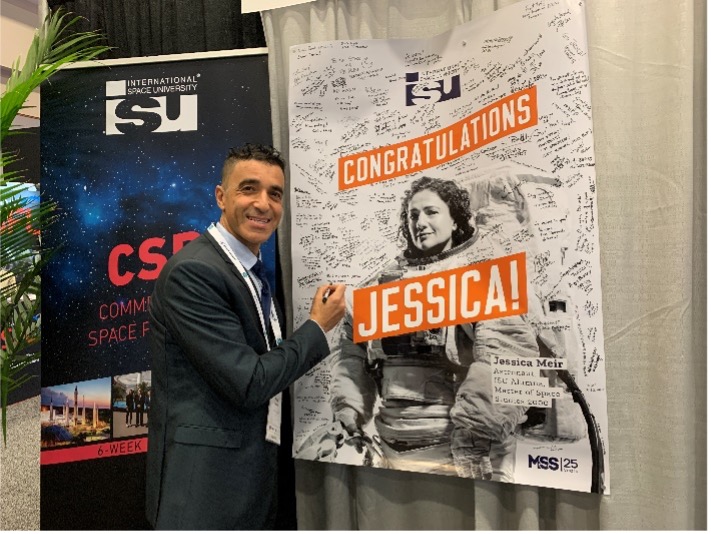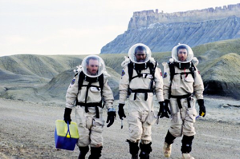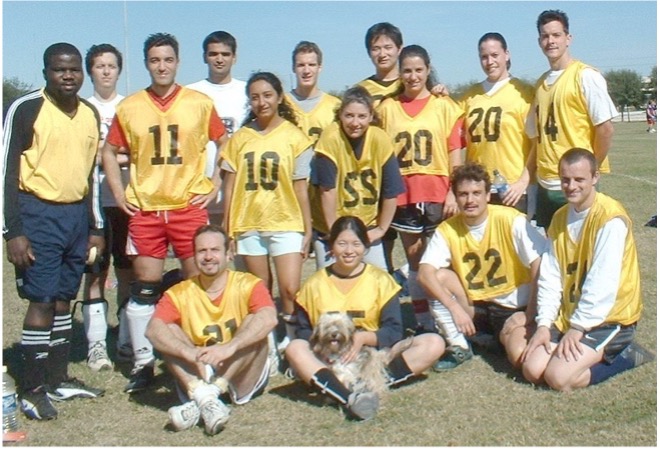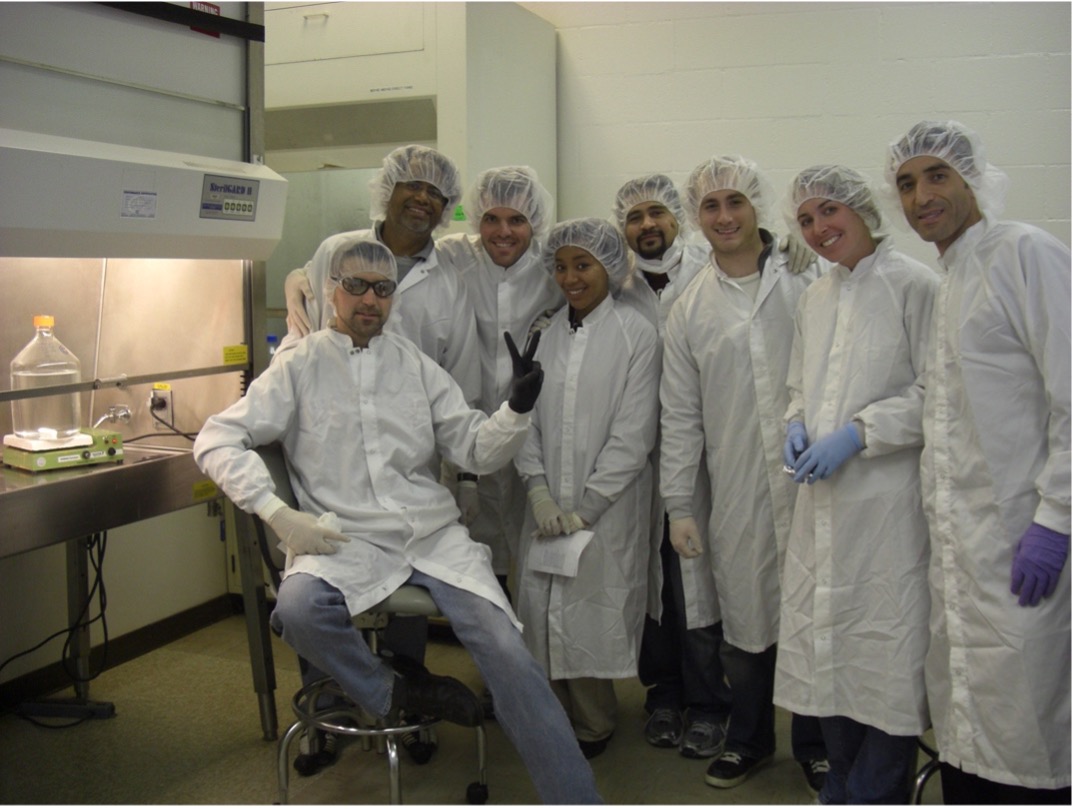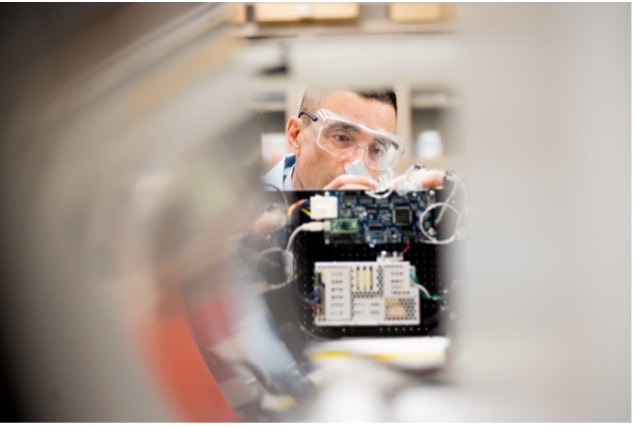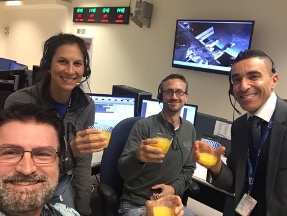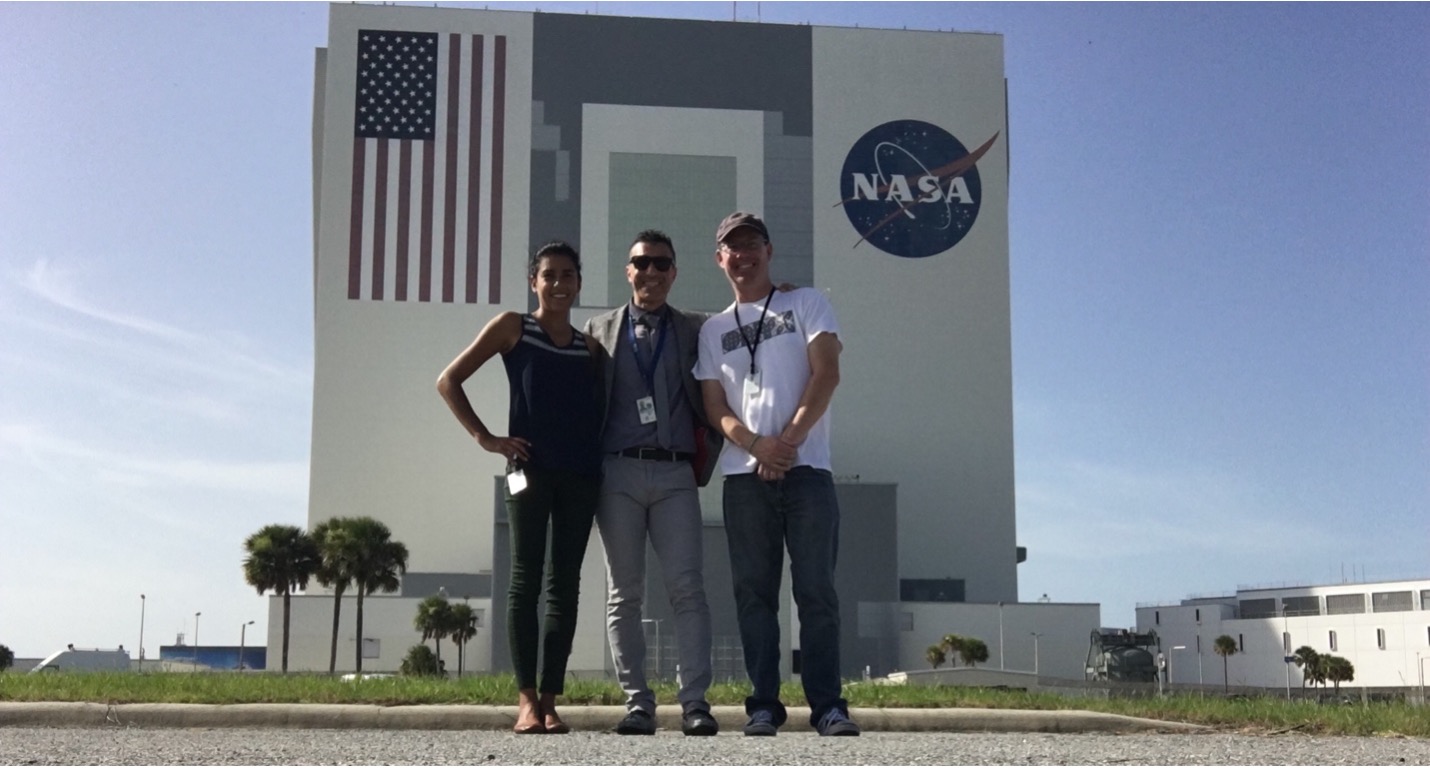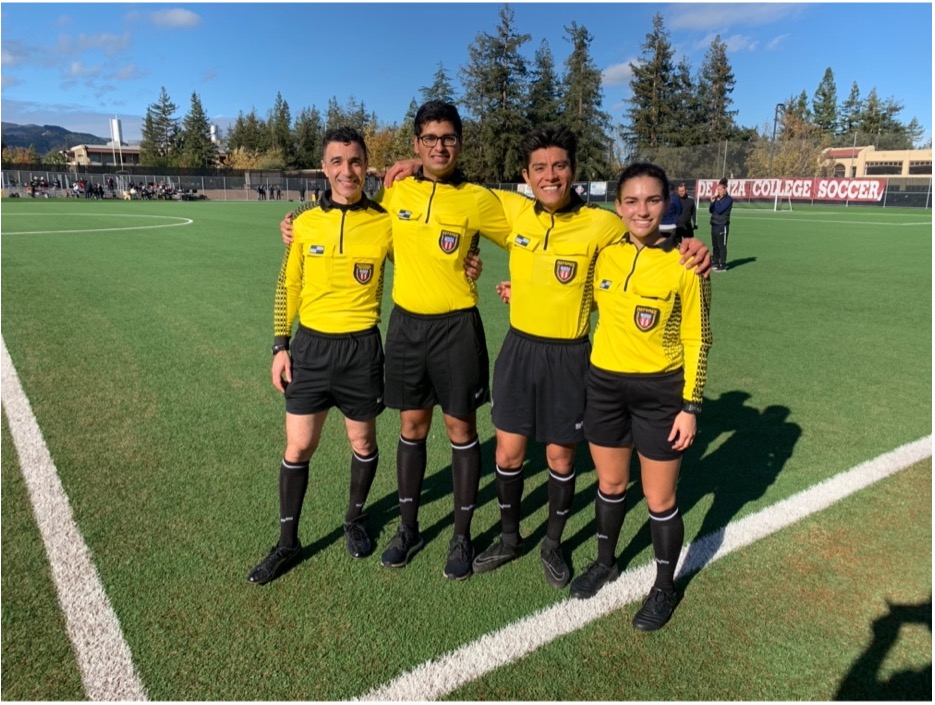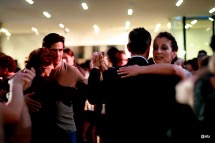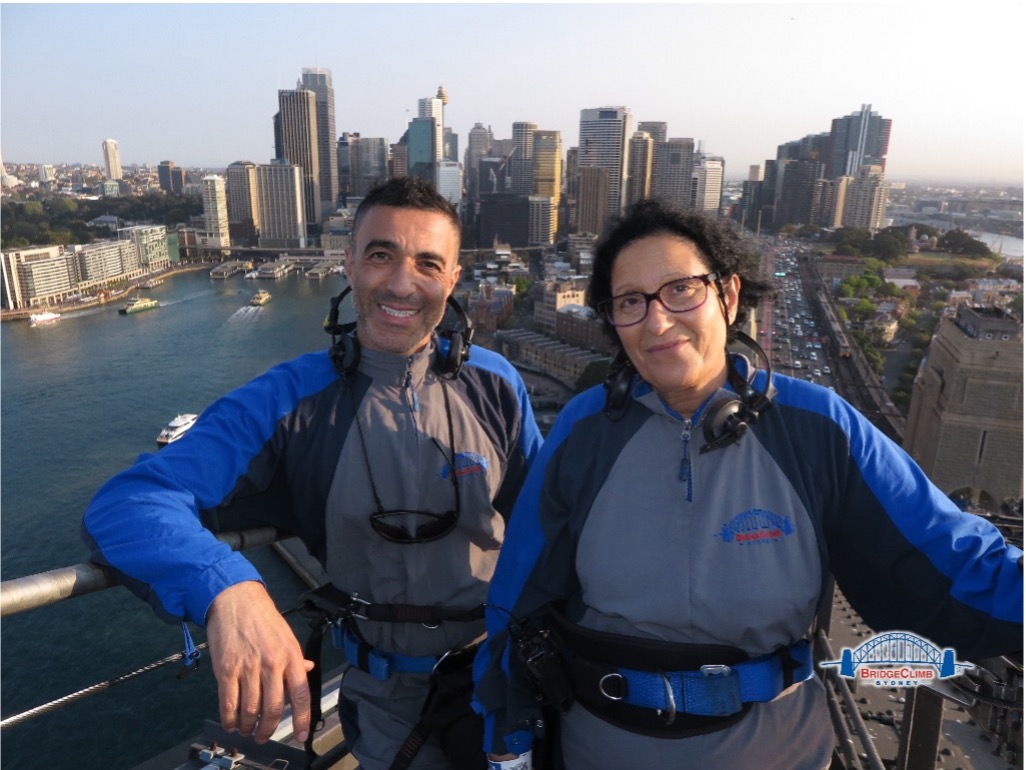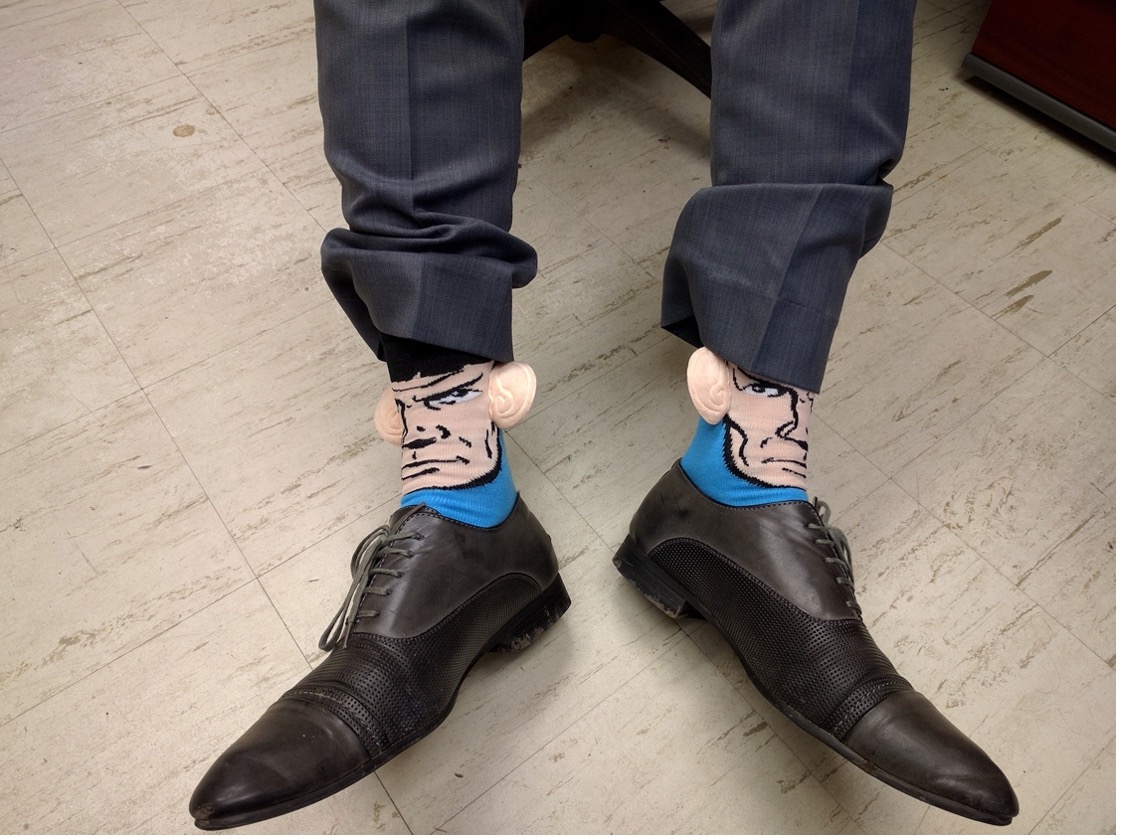Hi Fathi, and thank you for agreeing to do this. We generally start with your childhood. I often look up bio’s to see what it says about the early years and generally I don’t find anything so we’ll just ask you to tell us where you were born, I think it was in France, and something about your family at the time, including any siblings, and what your parents did? Also, at what point, if you can recall, did you gravitate toward an interest in the science you have pursued your career?
Well, as you can hear, Sara and I are both from Europe and indeed yes, I was born and raised in France but if you can tell, my name is not French at all. My ethnic background is North African, my parents are from Tunisia.
If I could interrupt briefly, I’d like to ask if the “T” in your first name is a hard T? Or a soft T with the h? Is it Fati or Fathi?
In French, it would be “Fat-ee”. In Arabic it would be “Fat-ay”.
OK, so it’s a hard “T” and I think I’ve always pronounced it the other way, so I’m glad I asked.
I generally use the French pronunciation because that’s what I’m used to but at home, my parents usually pronounce it the Tunisian way. Even more so when I was in trouble! (laughs)
So yes, I can go back a little bit in time and give you a sense of my origins. On my mother’s side, my grandparents immigrated to France in 1962 and my mom is the oldest of ten children. When they arrived in France there were nine and I have one uncle who was born in France. Their plan was to stay in France for one year only, but they remained all their life, so as you can see, sometimes things don’t go as planned! (laughs) My mom was a teenager when she arrived in France. My father came a little bit later, I think with one or two of his brothers. North Africa used to be either a French territory or a French colony so there are still very strong ties to France, based on economics and politics. After the second world war, there was a big demand for labor and many people from North Africa moved to France. Originally, I’m from a small city called Saint-Dizier, which had 30,000-40,000 people at the time, and perhaps 25,000 today. It is in the province of Champagne, in the northeast of France. My hometown is between Reims, which is sort of the capital of Champagne, and Nancy which is another city in a different province. Champagne province is made up of four different states (we say “departement”) Aube, Ardennes, Marne, and Haute Marne and I’m from the latter. Next to it is another province, Lorraine, of which Nancy is one of the major cities. So Champagne is limitrophe to Belgium in the north, the southern part is north of Burgundy, one of the wine regions, and the western side is maybe an hour and a half from Paris. The eastern border is next to the further east region of France which is Alsace-Lorraine. I was born and raised in Saint-Dizier and you were asking about my parents. My mom took care of her siblings early on and then got married. My father was, I don’t know how you say it in English, maybe it’s a carpenter? He was good with his hands and made furniture, tables, chairs, and things like that. Is that a carpenter here in the U.S.?
Yes, or maybe a woodworker or furniture maker.
OK, so that’s what he was, and my mom took care of us. I’m the oldest of four, I have one sister (Hayet) and two brothers (Karim and Ali). I am only 6 years older than the youngest therefore I have been close to my siblings. Going back to my parents, later when we grew up my mom worked in the city as a teacher’s helper in elementary school, helping the teacher with classroom activities, taking care of the kids, cleaning the classrooms, and things like that. And now of course, she is retired.
As for me, I didn’t really want to be a scientist. The scientist thought came a little later in my life. Initially I wanted to become a soccer player. I was quite good when I was young and was in special programs, in France called “Sport-Études”, sport and studies, and so your day was divided, part of it practicing soccer and the remainder doing the core traditional classes. At that time my interest was all about soccer and I was not very good at school because I was not studying at all. The plan was to just pursue that, and it was not too bad early on. I was in special programs, but then unfortunately I hurt myself, although it turned out to be a good thing because at that time my priorities changed, and soccer became a hobby. And without my injury I never would’ve been here for sure because I was not studying at all.
That changed when I was in high school, and I started taking classes and school seriously. I was pretty good in science, particularly in physics and chemistry, so I graduated from high school with a major in science and then moved to the University. I earned a bachelor’s degree in physics and chemistry, and during that time there was compulsory military service in France. It used to be two years, then it was one year, and at the time I went there it was only ten months. I don’t know why but for some reason I decided to go, because at that time, if you were a student, you could delay until you finished your studies. I probably could’ve just escaped but for some reason I decided to go, which interrupted my schooling so that between my bachelor’s degree and master’s degrees I spent ten months in the military. I was in the army, and I did pretty good. I became an under-officer, a sergeant, in a squad in which we were carrying tanks. I was a squad leader, a truck driver and leading a team of 10 to 20 soldiers, and we were responsible to transport military tanks to different locations. It was an interesting time, those ten months. You had people coming from all over France and I was kind of lucky because I remained in my own area of France, because you never knew where you were going to be assigned, and you had people who came from all over. A funny story is there was one guy from Marseille which is in the
south of France on the Mediterranean, and depending on the area where you came from, you had a different accent. You see that also in the U.S. In the South they have a more pronounced accent than in the Northeast, and so forth. Anyway, there was a guy from the south of France and when people from there talked it was almost like they were chanting. I was very close to that guy and for the first month or, so you were restricted to the base and not able to go back and visit your family. And for some reason I started to talk like him, using his accent and just by doing it, it became like a game and then it was something that kind of stuck with me. So, the first time I went back home, which was after a month, my family was shocked by the way I was talking to them! They said “What’s wrong with you?” To them I sounded like I was from the south of France, and they were kind of traumatized in a funny way. But I learned a few things and made friends and after that I continued to pursue my studies. I was pretty good in science, and I decided to pursue a master’s degree in physics at Nancy. Usually, they prefer that you go to the capital of your own province, Reims, for university but I didn’t have a strong affinity with the city, and I thought that Nancy was a little bit better, so I had to apply and got a special authorization to go study there, which was approved, and I got to do my studies in Nancy. So, I did my Master’s in physics and at that time I still was not very sure what I wanted to do. I never was smart, I want to emphasize that, but I worked hard and was able to make it through all those years, not being smart or gifted, but merely because I was working hard. And that has always been the case with me. So, I was not really sure what I wanted to do after my Master’s. I applied to some engineering schools because that was an opportunity to move from a master’s program to an engineering program. It was very competitive so I was on the waiting list for an engineering school in telecommunications but that didn’t work out and then there was the possibility of becoming a teacher. In France to become a teacher you need to have a master’s degree but I was not content just to be a standard teacher. There was a special program in France which is called “Agrégation”. It is a competitive examination for civil service in the French public education system. In the field of physics, they only accepted 100 people per year, so you took a special 1-year preparatory program to prepare for the exams and the oral test. There’s a written exam, which is three days, six hours every day, and then, if you qualify based on the written exam, you’re invited for the oral exam. It’s a special program that is very elite-oriented. I tried for that for two years but never landed in the top 100 so I was frustrated but I applied for a different program in space science, in particular, applied space technologies. It was a new program, and I was part of the first cohort that was held in Strasbourg, a city in eastern France on the border with Germany. In the old days that region, which is Alsace, had its own dialect which was 70% German. If you go back into history that province or state was French, then German, then back to French, so in the city, there would be some districts where you can tell the strong German influence. And now it’s where they have the European Parliament.
It’s a beautiful city and I recommend that you visit if you haven’t been there. So, I went there in a new program with no expectations except that I wanted to do something new. That program was a French version of another program that was in the same city, a Master’s of Space Studies from the International Space University. I’m not sure if you’re familiar with the International Space University but it was started as a summer program by three MIT students, Peter Diamandis, Todd Hawley, and Bob Richards in the late 1980s. It was kind of successful and they decided
to have a yearly summer program that went to places all around the world. So, for one month you would take some core courses relative to space, such as space economics, space law, and obviously the science, the engineering part of that, and then the second month you worked on a team project. The first one was at MIT, since it started there, and the second was at Strasbourg in France, and then it went from country to country. The vision was to have a permanent campus at some point. There was an international call for having a permanent campus and three cities were finalists: one in Canada, one in Japan, and one in France, and the one in France, in Strasbourg, won. So, the permanent campus of the International Space University is in Strasbourg. Maybe you know that Pete Worden is very much involved in it and on a yearly basis there have been a lot of people from Ames that have attended the program. One summer session program was at Ames several years ago, in 2009. When the campus was created, they also started the master’s program, but initially, it was just a summer program. And within the Strasbourg community, they decided to have a French version of that program and that’s when I attended the first class. During that program, things went well, and I did an internship at the French Space Agency, the Centre National d’Etudes Spatiales (CNES). I was at the headquarters, which is in Paris, for a few months as an intern and as a research associate, doing some research related to the early stages of spacecraft design and the use of virtual reality. You may recall the “better, faster, cheaper” way of doing things, from a previous NASA Administrator. All that was based on those design concepts where you had different specialties that would get together and build visually, like a satellite and things like that. So the purpose of my internship at that time was specifically working on that, and to come up with concurrent designs, looking at what the U.S. and JPL were doing and trying to see if we could do something similar in Europe, and France in particular. By then I was very excited about that program at the International Space University, so I applied and was accepted with a full scholarship from the European Space Agency (ESA), and after doing my Master’s in applied space technology, I went into the International Space University and did that Master in Space Studies. It was an incredible experience. I recently organized our 20th-anniversary reunion that was held virtually due to COVID. Despite being spread out all around the world, almost all students from the class attended, Jessica Meir included. She was my classmate and was selected as an astronaut in 2013. She was kind enough to participate and gave us an overview of a recent mission to the ISS.
I noticed that you had several Master’s degrees and that’s very commendable. I’d like to direct our conversation toward what got you connected up with Ames and the work you were doing, and maybe are still doing, having to do with planetary protection, clean room hygienics, and so forth, finding the microbes that were surviving your efforts to sterilize instruments and spacecraft that we’re going to leave the earth? But beginning with how you got to Ames.
Right, right, right. But let me finish because this is critical for the remaining part of my life and you’re right, I did a lot of studies and always said to my mom, teasing her, that I would be a student until I retired! And she always thought I was crazy! (laughs) Seriously, my parents were supportive of my studies, but my mother was in particular. Moreover, I have many great role models in my family. Several of my aunts and uncles from my mother’s side went to college and they paved the way for my successes. I am very grateful! But I was not driven initially toward what exactly I wanted to do and when you’re not really sure, you can try things and say “why not, why not?” So that’s another thing. But another reason I wanted to address it is that I think there’s another component which is something probably that came later in life. You see I’m an immigrant in France and initially, we were welcomed, and the economy was good, but then there was an oil crisis that spiked in the early 1970’s and then the economy was very much impacted. In France, we always had a very high level of unemployment and under such circumstances, those immigrant issues started to come back. The reason I’m bringing that up is that despite that France was always a welcoming country and I am very grateful for all the care, education, and opportunities I have received, I was still perceived at times as an immigrant despite being French. And the other thing that I’m just now remembering is that I was Tunisian when I was born, because my parents were Tunisian, and I was the first one in my extended family, the first one to become French at 16 years old. And the only reason was because of soccer. I was pretty good, but I was seeing all the guys playing for the national team, and wondering why that is. That guy cannot play soccer! And then I asked, and they said “Well, you’re not French!”
It turned out that you needed to be French. So, what did I need to do to become French? Well, first I filled out the paperwork so that I could become qualified to play in the inter-regions, and for the French team, that was one element. So, despite that France was a welcoming country, there were still issues from time to time that you had to face. Even these days, when I go to France, I can get reminded. For example, not too long ago I went into a bar and they told me “I’m sorry you can’t go in there, it’s a private party” (it is a polite way to say you were not welcome). Similarly, I remember when I was a student in Nancy, I called and said “I would like to rent the apartment”. And they would say “What’s your name?” I gave them my name and they said “Oh, the apartment is rented, I’m sorry”. But if I called back with a French name, they said “Oh yeah, come and see the apartment”. Don’t take me wrong I love France and I am a proud French Citizen! However, sometimes you are confronted with unfortunate situations that impact you as a human being. So, I think one of the reasons is that when I grew up, I felt that I would never be good enough, and that kind of pushed me to study more and do more. That was probably one of the reasons that, despite not knowing exactly what I wanted to do in life, I could still be a good person. It doesn’t matter what your origins are and what your background is you can be successful. Take my parents: none of them went to college and subconsciously I thought that was one of the drivers. The second part is that when I joined the International Space University, I was passionate about space science, and that was something that came about many times and was why I wanted to become an astronaut. That started to grow on me, organically speaking, and I was an intern at Johnson Space Center, and worked there for a few months as part of the master’s program on the biological effects of space radiation under the supervision of a NASA flight surgeon at the time, Dr. Jeffrey Jones. He is someone that I admire a lot and he also played an important role in my scientific career. He is now at Baylor College of Medicine and the VA in Houston, but we are still close, and we try to collaborate on the development of radiation countermeasures to minimize risks associated with long-duration spaceflight. So, at the time, I knew that this was what I wanted to do and to be involved with. So, after finishing my master’s program, I decided to come back to the U.S. as a tourist because at the time that was the only way I could come back. The plan was to go back to JSC to work with Jeff and try to get some funding. But at that time, I knew that becoming an astronaut was very difficult and what could I do to be a better candidate? Then I realized that there was one thing that I knew nothing about and that was biology. So, I thought, “Well, astronauts go to space, they do physical, chemical, and biological sciences”, so I thought maybe I could combine all these disciplines. I already had some of it, so I’d go for a PhD in biology. But it was tough because, as I mentioned,
I had transitioned from France to the U.S., and being able to be accepted for a PhD program in biology was difficult because all my previous degrees were in hard sciences like physics, chemistry, and engineering, but I was able to make it through. I remember during that first year that I was in the U.S., as a researcher at JSC, the way I was able to survive was by getting a small job at the University of Texas Medical Branch in Galveston. One professor, Robert Ullrich, there was doing some radiation biology work and I was interested in learning more, so I worked with him part-time for three months. And with that three months of funding, I was able to stay in the U.S. for almost a year. When I applied for the program, they said I was a good candidate, but I should take a few courses in biology, just to make sure I’d be able to survive. So, I took four classes in genetics, biochemistry, molecular biology, and cellular physiology at the University of Houston in Clear Lake so I could become a better candidate to apply for the Ph.D. program. But during that whole year, I was struggling for life because I only had three months of funding for the whole year to pay for school and a place to stay, and so on.
It was tough. I recall I was spending one dollar per meal. I remember going to the grocery store and they had those prepackaged meals, like fried chicken, corn, and mashed potatoes. That was the meal I was having almost every day. They had two or three versions of it, and it was only $.99! They had some with peas and when I was tired of eating that, I ate tuna with bread. It was crazy! When I told my mom she said, “You know, you’re insane! Why didn’t you tell us you were struggling so?” But that was my journey. I was determined to go there and that was part of the process. So, I never told them, up to the point that I was interviewed in France and I mentioned that part of the story and it was in the newspaper. That’s when my mom went ballistic because her friends were asking her, “What kind of a mom are you, sending your son out to spend just $.99 to eat? What’s wrong with you?” She was very, very, upset. (laughs)
But I was very determined and at the time when I was struggling, I got an offer from the ESA to work for them. They have a program called the Young Graduate Training Program that paid for one year and you could work with them. But I turned down the offer. I preferred to stay at JSC and work there, volunteering, instead of working for the ESA. So that tells you how hard-driven I was. I did my Ph.D. at the University of Houston in biology with an emphasis on Space Microbiology through a collaboration with Dr. Duane Pierson’s group at NASA JSC. My mentor
was the well-renown, Prof. George Fox. He worked with Carl Woese in the mid 70’s and they both revolutionized the field of biology by defining a new kingdom, Archaea, in the Tree of Life through a pioneering phylogenetic taxonomy of 16S ribosomal RNA. But I was French and at that time there was a European selection to become an astronaut, that was in 2008. That was the first time that the European Space Agency was doing the competition, whereas before it was on a national level. So I applied and became an astronaut candidate. But the problem with Europe as they only allowed one candidate per country, and of course, they were not going to take a candidate from every country because the program was very small, so they only picked four candidates. There was only one from France and I didn’t make the cut. But at least I was officially an astronaut candidate at that time. So I looked at various fellowships and I applied to two of them. I applied to the most prestigious one, which was not NASA, it was from the National Academy of Science, which is the National Research Council, and I also applied for the NASA Postdoctoral Program at Ames. I got the award from the National Academy to do some work on radiation and then I went back to Ames and said, “OK guys, you need to make a decision
because otherwise, I’m going to go”. And that’s when they gave me an offer and I was able to join Ames. That fellowship was related to planetary protection work. Orlando Santos was the branch chief of Exobiology at the time, and it was to work with him, with some support from the planetary protection officer Cassie Conley. At the time all the planetary protection expertise was at JPL, and it would be good to diversify the expertise and not have everything based at JPL. So, I was invited to start a laboratory and do planetary protection work, and I did some sampling of the clean rooms here at Ames. At the time, I was lucky enough to receive mentorship and some training in planetary protection from Dr. Kasthuri Venkateswaran (Venkat) at NASA JPL. I collaborated with Venkat when I was a graduate student and worked on the genome analysis of a Bacillus strain that was isolated from the spacecraft assembly facility. We are still collaborating on several projects associated with astrobiology and space biology. So, during my postdoc, I was working with Orlando practically daily, but Andrew Pohorille was also there, and he was a very important mentor in my career. At the time he had an astrobiology grant, an ASTID (Astrobiology Science and Technology Instrument Development) grant, and so at the same time, I was doing some work related to planetary protection with Orlando, and helping Andrew with his Gene Expression Measurement Module (GEMM) work. The idea was to develop a miniaturized automated system for a nanosatellite where you could do science from end to end. Grow some cells, extract the components of those cells, in particular the nucleic acids, and then use that information to inquire about the metabolic state of those cells. The concept was to have a system that was small, integrated, and microfluidics-based and typically driven for applications towards spacecraft, but to conduct meaningful science to understand how biological systems coped with the space environment. We were able to develop a prototype and I was responsible for the biological validation of the instrument. So that went very well and after I finished my two years postdoctoral fellowship, I was able to join the rank of the University of California San Francisco (UCSF). As you recall, Andrew Pohorille had a dual position. He is a civil servant at NASA Ames, but he was also a faculty at UCSF. Through him, I was able to join the School of Pharmacy and the Department of Pharmaceutical Chemistry as a research faculty. Initially, I was at the assistant level for two years when I was helping him with his projects, and then when his project ended, I looked around for what to do next and that’s when I joined the Space Biology project at Ames. That was in 2013. So again if you want some dates: I joined Ames in 2009, I was a postdoctoral fellow for two years, then in 2011 I joined the ranks of the University of California for the two years I worked with Andrew on that GEMM project, and then I moved on to work for Space Biology. But I remained with the University of California at San Francisco until recently. The way it worked was that I was an employee of the University of California as a research faculty and when I joined the Space Biology Program I became a researcher, which stands for a research professor, so I was detached from the university to work with the Space Biology Program. At that time, I was doing two things: I was a project scientist, which means I was the liaison between the principal investigator who had been selected by NASA to conduct an experiment in space and the payload developer. Sometimes the payload developer was NASA, but most of the time it wasn’t, it was a commercial developer. I was
helping the principal investigator translate what they had proposed into something that can be developed, tested, and implemented in space. I had no prior experience in that but, I loved it, and I was pretty good at it. In fact, I was so good that they asked me to become the portfolio lead scientist for Space Biology, and I said, “OK, sure”. In that capacity, I was overseeing all of the space biology-related science that was implemented on board the International Space Station.
My official title was “Non-Rodent Portfolio Lead Scientist”. The reason was that the portfolio for Space Biology was divided into two entities: there was a rodent, and you know Ames has tremendous expertise in that activity, the rodent habitat. And then the non-rodent and my portfolio was huge because I had microbiology, cell and molecular biology, invertebrates, plants, and reproduction, developmental, and evolution biology. I had several project scientists reporting to me on a daily basis and I was helping them implement the science, tracking the budget, schedule, and risks. And that, for me, was a lot of fun.
Can I break in here, just for a moment? We have a bit of a time constraint and we do want to touch on a couple of other areas, one of them, which is kind of a fun question, is if you weren’t a scientist at NASA doing what you’re doing, have you ever thought of what your dream job would be?
Well, I mentioned soccer (football) earlier as something that I wanted to do, and I’m glad that we didn’t talk yesterday because I was very upset. On Tuesdays and Wednesdays, there is the Champions League. The Champions League is when the best teams in Europe compete against each other and Sara is laughing because she knows that yesterday Paris played against Madrid and there was no way that we could lose that game, but we did! And I couldn’t focus the rest of the day so that tells you how affected I was. So, I’m glad we’re talking today and not yesterday! (laughs) But I think if I had to change something I wouldn’t have gotten a PhD. I would’ve gotten an MD.
Something that I didn’t mention is that in France, as opposed to here in the U.S., after high school you need to decide what you want to do with your life. It’s not like here, where you take classes and then you decide. In high school, you have to decide what you want to do. I was debating between medical school and science and in France, medical school starts right after high school. My uncle, my mom’s brother, was already a medical doctor. I had never talked to him and that might have been a mistake, but I thought well there’s already one in the family so let’s do something else. And that’s the way I ended up where I did by initially studying physics. But the U.S. is where you can do many more things from a clinical perspective and I think that if I had to change something, that is something that I might have considered. During COVID I was thinking about going back to school and doing an MD. When you have a Ph.D., they are programs where you only do three years, not four years, and I was very much considering it but I thought, well it’s a lot of work and all. So, I decided not to proceed but that is something that I, still to this day, am considering.
OK, let’s move away from what you’re actually doing now and what you want to be doing, and ask this question: in the midst of all the things you have going on in your life, what do you do for fun? Do you have hobbies, talents, skills, play a musical instrument, or anything like that? Do you still play soccer?
Yeah, I do. But I am also a national referee for college soccer. When I was in graduate school in Houston, I thought maybe I could make some money by becoming a referee. That’s one of the ways that I survived as a student. I was pretty good, and I moved up through the ranks pretty quickly, and now I’m a national referee for NISOA (National Intercollegiate Soccer Official Association), for the NCAA. I officiate games at Stanford, Berkeley, and other local universities. So, soccer obviously has been a big part of my life. I used to play a lot, but I don’t anymore these
days because I hurt myself all the time. But still, I do sports-related activities 5 or 6 times a week, mainly for fitness.
The other thing I enjoy is dancing. When I first joined Ames in 2009, I lived in San Francisco and so I would head to work on Monday, then come back here (home) and they had a class called Bikram Yoga from 8:15pm to 9:45pm, so then you eat very late at night. And then I would get up super early in the morning and go back to work. There was a program at Ames, Tuesday dance classes, that used to be outside the gate. And one was Salsa Rueda. I like Salsa, I like Latin dances, and Salsa Rueda is a special type of Latin dance which originated from Cuba. They had Salsa Rueda dancing classes at Ames, so on Tuesday I was attending two dancing classes back to back and I would stay there until 10:00pm and then go back home. On Wednesday I attended Tango classes in the city. And then Bikram Yoga on Thursday night and on Friday nothing and then Saturday morning Tango again, so it was either work or dancing class! And I enjoyed that. Now during the pandemic everything is shut down, but before that I was going out and dancing.
The other thing I didn’t mention is during my college studies I went on two expeditions that were Mars simulations. One was in the U.S. for a month, in Utah, and the other one was in Australia. That was at the time when I was interested in becoming an astronaut. But for the fun part, exercising and dancing. In this area we are blessed and you can do a lot of things such as go on hikes. I like to ski too, but I don’t as much as I used to.
Do you want to say anything about your family? Wife, kids, pets, anything like that?
No, no. I have a plant at home these days, which is still alive, so that is good! (laughs) Seriously, I am very close to my family and I try to go back twice a year, summer and Christmas. Otherwise, I have 2 nephews and 3 nieces that I like to pamper. Everytime I am in Paris I will visit my aunts and uncles because heading to my home town. But I’m close to my mom and I’ve been trying to have her over on a regular basis so I can take her to beautiful places. I took her to India and Australia, I was there for scientific meetings and then we did some sightseeings. I took her also to Hawaii and we went all over the U.S. She enjoys being with me because she knows she will be pampered! (laughs)
I remember once we went to New York and had a good time. She flew back to France and she was telling the stories to her family, her siblings, you remember she was the oldest of ten, and she said, “Oh yeah, New York! We went to a nice hotel, it started with an “R”, or something. Oh yeah, it was the Ritz, it was a nice hotel!” A nice hotel! (laughs). She said, “Oh yeah, New York is nice but it’s just big tall buildings, and after three days you can’t look at that anymore because your neck is hurting! But next time I can take you there”. So we’ve been to many places. She’s a fan of Sin City also, I took her once to Las Vegas to see Celine Dion. she is a fan. She likes nature so I took her to Hawaii, to the big island, we visited volcanos and things like that.
She’s certainly lucky to have you.
Well you only have one mama, so you have to pamper her! But to answer your question I’m not married and have no kids.
What if I asked you what has inspired you in your life pursuit? What do you find inspirational or motivational?
Tough questions! I mean I’m proud of growing up in a difficult environment, in kind of a survival mode, and to succeed. And then I mentioned feeling that I was not good enough, but then with time I learned that anything is possible, that has been one of my motivational effects. No matter what people say or think, just go for it.
We also ask if there’s a favorite quote or something that you find motivating or funny or clever, something that we might see on your wall if we were in your office.
Well that’s pretty easy. It’s actually the same quote which is on my thesis. Must be somewhere, I think it’s must be right here. It’s from De Gaulle and I like it very much. I will try to translate it to for you: “Researchers that are searching, you find. But researchers that are finding, you search.” And I think this is very, very powerful because there are a lot of people who are searching for something and they’re not finding anything, and the key thing is to find things, and so I love that quote.
We’d also like to get some pictures to go along with what you’ve talked about here so if you can send those we will add them to the post. Most people have an interesting story to tell and you certainly do. It’s going to be interesting for people who read this and say, “I never knew that he liked to dance, for example, or was a soccer referee, or was an astronaut candidate!” The things that you have done are pretty amazing.
Good and thanks again for your time.
Interview conducted by Fred Van Wert on March 10, 2022
Updated Nov 7, 2023

